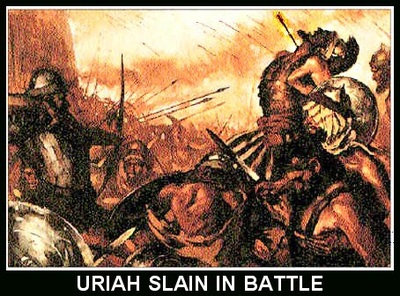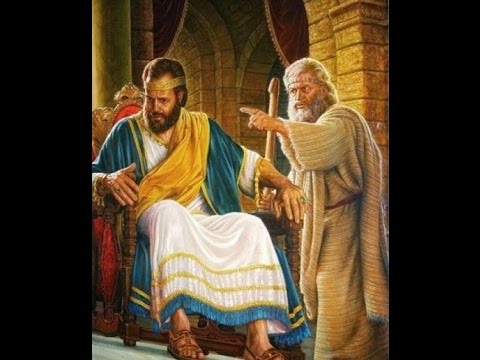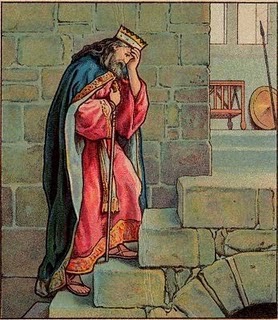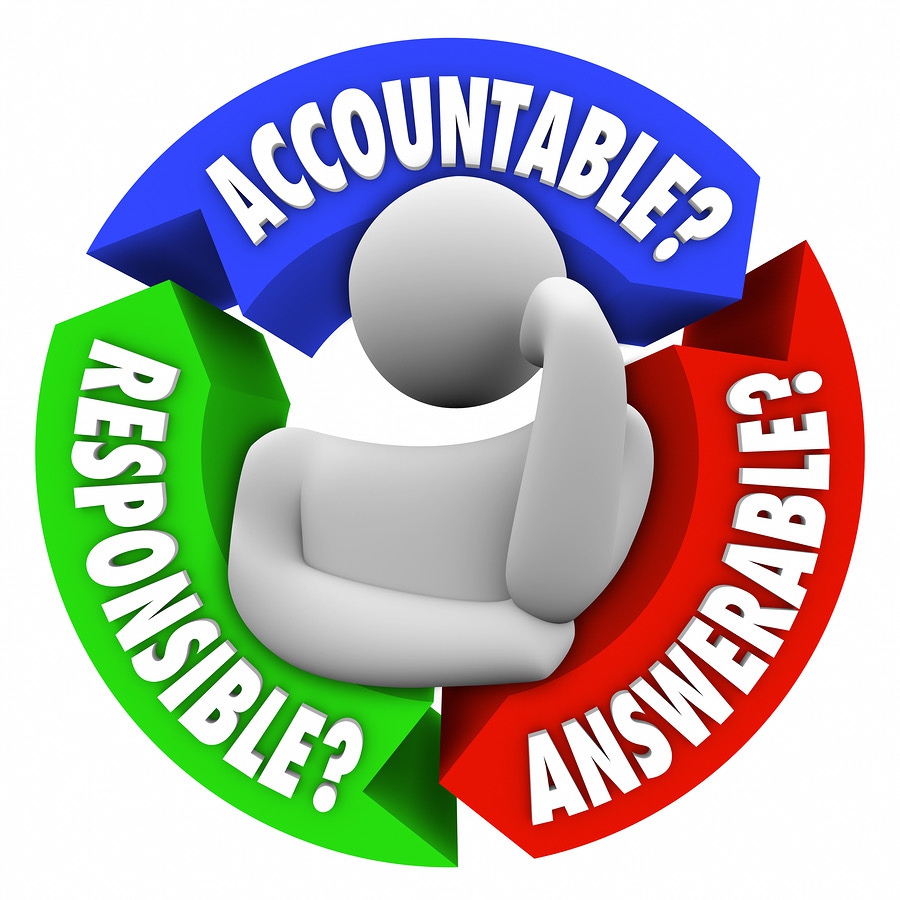
When Jesus was asked by his disciples to teach them how to pray, Jesus taught them what today we call the Lord’s Prayer.  One sentence in the Lord’s Prayer asks God to forgive our sins, as we ourselves forgive the sins of others against us (see Luke 11:1–4 and Matthew 6:5-15).
One sentence in the Lord’s Prayer asks God to forgive our sins, as we ourselves forgive the sins of others against us (see Luke 11:1–4 and Matthew 6:5-15).
Considering Genesis to Revelation in the Holy Bible, there is no question, at least for me, that God calls the disciples of Jesus Christ to forgive.
That said, does forgiveness cancel accountability and consequences? In other words, if I forgive a person, does that mean he/she is not answerable for his/her actions and/or that he/she will bear no consequences for their actions? Or, stated differently, are those who commit trespasses against me free of responsibility or free of any consequences for their actions by virtue of me forgiving them?
What does the Holy Bible say about this? Space does not permit an exhaustive review here. But let’s consider just one story from the Holy Bible that may shed some light on this question.
In the Old Testament (2 Samuel 11:1–27), the story is told King David, Bathsheba, and Uriah. What follows is a brief summary of their story.
One evening, King David was walking on the roof of his home, and he saw a beautiful woman bathing. David inquired about the woman, and learned that she was Bathsheba, the wife of Uriah. Even though King David knew she was married, he sent for her anyway, slept with her, and shortly thereafter learned from her that she was pregnant from their union.
At this time, King David’s army was at war. They were under the command of Joab, and Uriah was one among the troops. In an attempt to cover up their pregnancy, David sent word to Joab to have Uriah sent back to Jerusalem where he was. Once back in Jerusalem, David told Uriah to go home and spend some time there. His strategy was that while Uriah was home, he would sleep with his wife so that the pregnancy could be stealthily attributed to him.
But being the noble warrior he was, Uriah refused to go to the comforts of his home knowing that his comrades were at war battling an enemy. Instead, Uriah slept at the door of David’s house with his servants. So, David’s first attempt to cover up his adultery and resulting pregnancy failed.
David tried one more time. This time, he had Uriah eat and drink with him to the point that Uriah got drunk. David’s strategy was that being well-fed and drunk, Uriah would go home, sleep with his wife, and cover up his pregnancy with his wife Bathsheba. But again, Uriah did not go to his home and once again slept with David’s servants.
 When David realized his plan was not going to work, he sent a written message back to Joab, in fact carried to Joab by Uriah, instructing Joab to put Uriah at a place where he knew there would be valiant soldiers so that Uriah would be killed.
When David realized his plan was not going to work, he sent a written message back to Joab, in fact carried to Joab by Uriah, instructing Joab to put Uriah at a place where he knew there would be valiant soldiers so that Uriah would be killed.
Joab did what King David told him to do and Uriah was killed by enemy soldiers. After Bathsheba’s period of mourning was over for Uriah, David brought her to his home, and she became his wife.
So, King David lusted and coveted for Uriah’s wife Bathsheba, committed adultery with her, and got her pregnant. Then, he devised a deceptive plot to try to have the pregnancy attributed Uriah, and when that didn’t work arranged to have Uriah killed, and then brought his wife Bathsheba to his house to be his wife.
Now, considering that David was described as a man after God’s own heart (1 Samuel 13:13-15) and that God had selected him to replace King Saul (1 Samuel 16:1-13), God could have chosen to cover up the matter and keep it quiet. I mean really, for this series of events to go public would have been, in the language of today, a public relations nightmare!
But instead, God chose to send one of his prophets to confront King David (2 Samuel 12:1–15):
“And the Lord sent Nathan to David. He came to him and said to him, “There were two men in a certain city, the one rich and the other poor. 2 The rich man had very many flocks and herds, 3 but the poor man had nothing but one little ewe lamb, which he had bought. And he brought it up, and it grew up with him and with his children. It used to eat of his morsel and drink from his cup and lie in his arms, and it was like a daughter to him. 4 Now there came a traveler to the rich man, and he was unwilling to take one of his own flock or herd to prepare for the guest who had come to him, but he took the poor man’s lamb and prepared it for the man who had come to him.” 5 Then David’s anger was greatly kindled against the man, and he said to Nathan, “As the Lord lives, the man who has done this deserves to die, 6 and he shall restore the lamb fourfold, because he did this thing, and because he had no pity.”
 7 Nathan said to David, “You are the man! Thus says the Lord, the God of Israel, ‘I anointed you king over Israel, and I delivered you out of the hand of Saul. 8 And I gave you your master’s house and your master’s wives into your arms and gave you the house of Israel and of Judah. And if this were too little, I would add to you as much more. 9 Why have you despised the word of the Lord, to do what is evil in his sight? You have struck down Uriah the Hittite with the sword and have taken his wife to be your wife and have killed him with the sword of the Ammonites. 10 Now therefore the sword shall never depart from your house, because you have despised me and have taken the wife of Uriah the Hittite to be your wife.’ 11 Thus says the Lord, ‘Behold, I will raise up evil against you out of your own house. And I will take your wives before your eyes and give them to your neighbor, and he shall lie with your wives in the sight of this sun. 12 For you did it secretly, but I will do this thing before all Israel and before the sun.’” 13 David said to Nathan, “I have sinned against the Lord.” And Nathan said to David, “The Lord also has put away your sin; you shall not die. 14 Nevertheless, because by this deed you have utterly scorned the Lord, the child who is born to you shall die.” 15 Then Nathan went to his house. …”
7 Nathan said to David, “You are the man! Thus says the Lord, the God of Israel, ‘I anointed you king over Israel, and I delivered you out of the hand of Saul. 8 And I gave you your master’s house and your master’s wives into your arms and gave you the house of Israel and of Judah. And if this were too little, I would add to you as much more. 9 Why have you despised the word of the Lord, to do what is evil in his sight? You have struck down Uriah the Hittite with the sword and have taken his wife to be your wife and have killed him with the sword of the Ammonites. 10 Now therefore the sword shall never depart from your house, because you have despised me and have taken the wife of Uriah the Hittite to be your wife.’ 11 Thus says the Lord, ‘Behold, I will raise up evil against you out of your own house. And I will take your wives before your eyes and give them to your neighbor, and he shall lie with your wives in the sight of this sun. 12 For you did it secretly, but I will do this thing before all Israel and before the sun.’” 13 David said to Nathan, “I have sinned against the Lord.” And Nathan said to David, “The Lord also has put away your sin; you shall not die. 14 Nevertheless, because by this deed you have utterly scorned the Lord, the child who is born to you shall die.” 15 Then Nathan went to his house. …”
I don’t have space here to recount the full story of King David, Bathsheba, and Uriah. You can read that for yourself in 2 Samuel 11:1—20:26. Here, let me just note seven important takeaways from this story.

Forgiveness does not necessarily cancel accountability and consequences. Forgiveness, accountability, and consequences may sometimes occur together. Throughout the Holy Bible, we see God’s love, and we also see God’s justice; and we see God’s forgiveness, grace, and mercy, and we also see God’s punishment and discipline.
Now, am I suggesting that I should forget about forgiveness, and focus instead on accountability and consequences? No! No! No! No! No! Certainly not! Or, am I suggesting that I should definitely forgive, and then race like a pit bull to vengence against the person I have forgiven? Again, no, no, no, no, no—absolutely not!!!
So, exactly what am I saying. To forgive another person does not necessarily nor always mean that the action(s) of the person forgiven is or should be left unaddressed.
Sometimes, the results of leaving sins unaddressed can lead to other undesireable consequences. Let me share three examples to explain.
 First, a girl’s father was sexually abusing her. She did not want to report him because she loved her father and was concerned about what would happen to him if he was reported. Left unaddressed, he continued to sexually abuse her, as well as another sibling, and later his own grandchildren. It’s great to have concerns for the abuser. But what about concerns for the abused? Do they not count? Sometimes, leaving sins unaddressed may allow a person to continue bringing harm to others.
First, a girl’s father was sexually abusing her. She did not want to report him because she loved her father and was concerned about what would happen to him if he was reported. Left unaddressed, he continued to sexually abuse her, as well as another sibling, and later his own grandchildren. It’s great to have concerns for the abuser. But what about concerns for the abused? Do they not count? Sometimes, leaving sins unaddressed may allow a person to continue bringing harm to others.
Second, during a service at a church I once attended, the Pastor got up and called upon the church to forgive the organist who had committed adultery. But at no point did I ever hear the Pastor get up and speak about the adultery the organist committed or the damage resulting from his adultery. I believe in forgiveness. Really, I do. I also believe in the commandments “You shall not commit adultery” and “you shall love your neighbor as you love yourself”. Do we promote forgiveness, and yet ignore sin and its consequences? Do we tell a wife who is living with an adulterous and abusive husband to forgive, and yet say nothing to or do nothing about the adulterous and abusive husband? Do we tell persons affected by the sins of others to forgive, while saying/doing nothing about the persons committing the sins? Sometimes, leaving sins unaddressed may create an environment where individuals feel enboldened and enabled to continue in sin.
Finally, a teacher was caught one night having sex in his car with one of his students. How did the church/school respond? They rallied around the teacher to support him, rather than rallying around the student to support her. In a situation like this, it is so very important to undertake a process to really look closely at what happen, get at its core, and take genuine steps to effectively help BOTH/ALL parties in the situation. Sometimes, we are so quick to jump on the forgiveness / restoration bandwagon, that we overlook the real victims of sin as well as miss an opportunity to work with those committing sins to address areas in their life where critical growth and transformation are needed.
To forgive is an important call of God to all the followers of Jesus Christ. At the same time, the story of King David, Bathsheba and Uriah indicates that sometimes accountability and consequences accompany forgiveness.
Do I have a formula to give you for whom, when, where and how that happens? No, that’s the kind of wisdom you want to get from the Holy Spirit (James 1:5). I just hope that you take away from this blog greater awareness that sometimes forgiveness, accountability and consequences occur together. You can forgive a person, and that person can still be held answerable, responsible, and accountable for his/her action(s), as was the case with King David.
For notifications of upcoming blogs and other TFT updates, go to our Home page and Join Our Email List.
For more information about sexuality, wellness, and change, visit our online Resource Center.
Contact Us to schedule TFT coaching, communications, or consulting services.
Copyright © 2023 Training for Transformation, Inc. All rights reserved.
Unmask and Act for Emotional Wellness
Laura S. Pierce, MBA, M.Ed., NBCT, Co-Director, Emotional Wellness Ministry, Seabrook SDA Church
3/28/2025
Dealing with Regrets
Dr James H Dotson Jr
3/27/2025
Can the Bible be Trusted?
Alicia W. Patterson, MA Religion, Confluence Grief and Loss Coaching and Consulting
11/19/2024
Do You Know My Jesus?
Mo Dotson, Founder/Director, Mo’ Better Living Ministries™
11/4/2024
Completing Your Past
Dr James H Dotson Jr
6/28/2024
Confronting the Realities of Pre-Marital Sex: Part 3—Transformed
Donna Cameron, PhD
5/3/2024
Confronting the Realities of Pre-Marital Sex: Part 2—Frustrated
Donna Cameron, PhD
4/26/2024
Confronting the Realities of Pre-Marital Sex: Part 1—Tangled
Donna Cameron, PhD
4/19/2024
Evil—Part 3: How Do I Live With Bad Stuff?
Dr James H Dotson Jr
12/17/2023
Evil—Part 2: Why Doesn't God Stop Bad Stuff From Happening?
Dr James H Dotson Jr
11/7/2023
Evil—Part 1: Why Does Bad Stuff Happen?
Dr James H Dotson Jr
10/23/2023
In the Midst of Life’s Realities - the Good and the Bad - What Keeps Me Going?
Dr James H Dotson Jr
6/27/2023
Teen Dating Part 1: 7 Tips for Young Gentlemen
Dr James H Dotson Jr
6/5/2023
Teen Dating Part 2: 7 Tips for Young Ladies
Dr James H Dotson Jr
6/5/2023
Does Forgiveness Cancel Accountability and Consequences?
Dr James H Dotson Jr
2/24/2023
Joy
Dr James H Dotson Jr
1/22/2023
Be Alert!!!
Dr James H Dotson Jr
1/7/2023
Where Are You Going?
Dr James H Dotson Jr
12/16/2022
Breaking the Chains
Dr James H Dotson Jr
10/21/2022
The Renewing of My Mind—Part 3
Dr James H Dotson Jr
8/27/2022
The Renewing of My Mind—Part 2
Dr James H Dotson Jr
8/21/2022
The Renewing of My Mind—Part 1
Dr James H Dotson Jr
8/16/2022
What In The World Is Going On? — Part 2
Dr James H Dotson Jr
8/6/2022
What In The World Is Going On? — Part 1
Dr James H Dotson Jr
8/6/2022
A Gift We Cherish or A Gift We Abuse?
Dr James H Dotson Jr
1/14/2022
Caught in the Very Act
Dr James H Dotson Jr
1/7/2022
Daniel's Resolve
The Professor
12/31/2021
A Distorted View of Manliness
Dr James H Dotson Jr
12/24/2021
Breaking the Cycle of Intimate Partner Violence (IPV)
Dr James H Dotson Jr
12/17/2021
We Can Win!!! We Have Won!!!
Dr James H Dotson Jr
12/10/2021
Help for Victims of Sexual Abuse
Dr James H Dotson Jr
12/4/2021
Extraordinary Opponents, Require Extraordinary Measures
Dr James H Dotson Jr
12/3/2021
Journey to Transformation
Dr James H Dotson Jr
9/11/2021